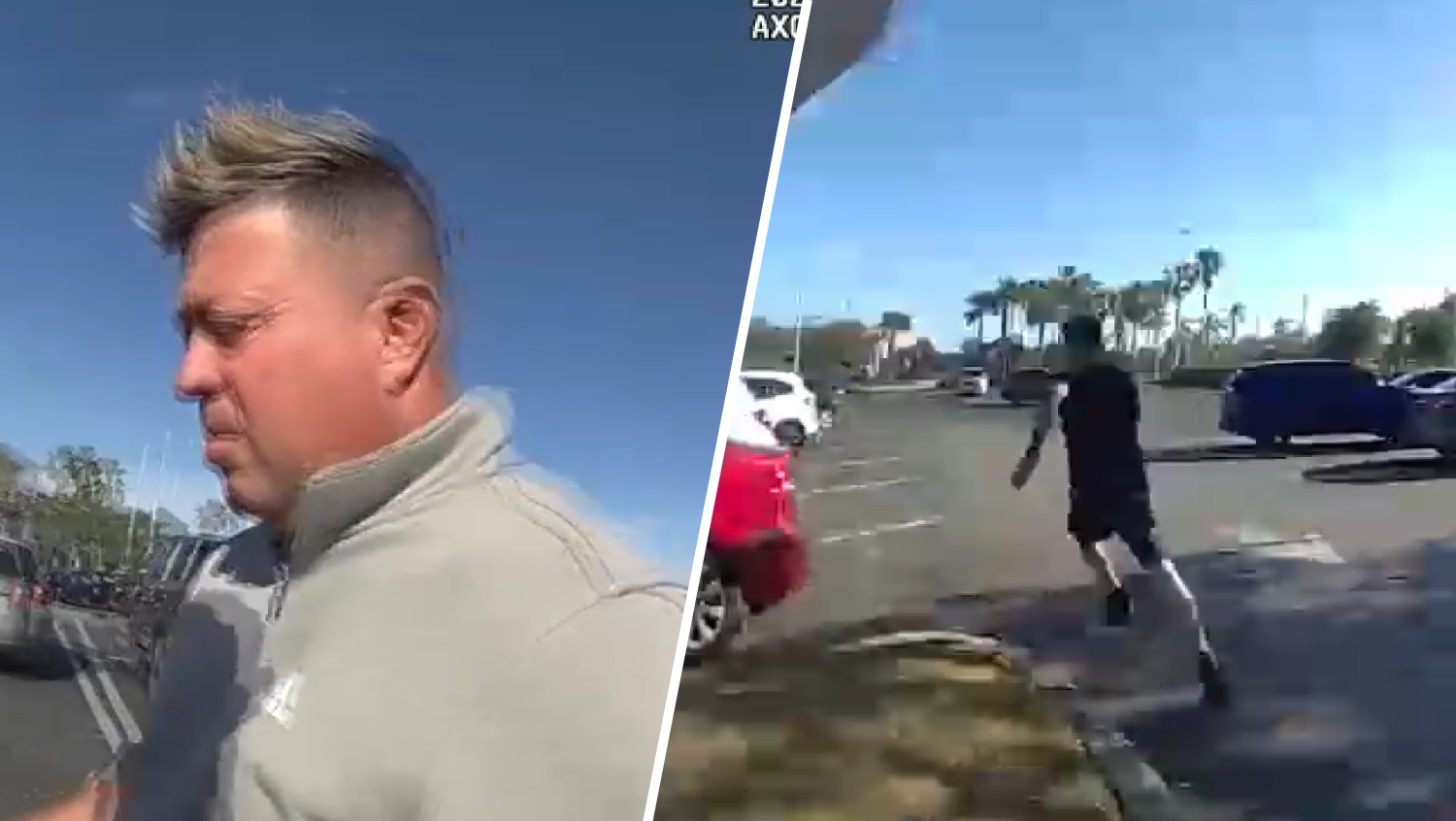The 911 call came in just around 5:30 on a Friday evening.
A man, breathing heavily, told dispatchers that he was overdosing. In the background, a child can be heard frantically yelling “Mom, wake up.”
When police arrived to the South Florida home minutes later, they found an unresponsive couple lying on the floor while their two young children cried.
According to the arrest report, there were bags of heroin and fentanyl “in plain view” inside the “filthy” cockroach-infested home.
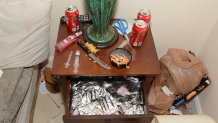
That’s the reality some children in South Florida are facing.
Over the past three years, the state has removed children from addicted parents in more than 4,000 cases in our area.
Local
Almost half of those cases were reported in Broward County.
“Right now, we have more children between birth and five in shelters and in group care than we’ve ever had and that may very well be a function of opioids,” said Larry Rein, the Executive Director of ChildNet.
The non-profit organization is contracted by the Florida Department of Children and Families to provide foster care services in Broward and Palm Beach counties.
Rein says there are not enough foster parents to care for the children orphaned by drugs.
“We have a dramatic need for homes and it’s only going to grow,” Rein said.
In Palm Beach County, there was a 42 percent increase in cases linked to drug abuse, from January to July - compared to the same period last year.
The Department of Children and Families told us that they don’t track the cases by drug choice, but Rein says the increase can be linked to opioids.
if("undefined"==typeof window.datawrapper)window.datawrapper={};window.datawrapper["0VpiO"]={},window.datawrapper["0VpiO"].embedDeltas={"100":704,"200":489,"300":428,"400":412,"500":367,"700":351,"800":351,"900":351,"1000":351},window.datawrapper["0VpiO"].iframe=document.getElementById("datawrapper-chart-0VpiO"),window.datawrapper["0VpiO"].iframe.style.height=window.datawrapper["0VpiO"].embedDeltas[Math.min(1e3,Math.max(100*Math.floor(window.datawrapper["0VpiO"].iframe.offsetWidth/100),100))]+"px",window.addEventListener("message",function(a){if("undefined"!=typeof a.data["datawrapper-height"])for(var b in a.data["datawrapper-height"])if("0VpiO"==b)window.datawrapper["0VpiO"].iframe.style.height=a.data["datawrapper-height"][b]+"px"});The crisis is not only hitting Florida’s foster care system.
A recent report by the U.S. Department of Health and Human Services found that the foster care populations in six states rose by more than half in just four years (2012-2016).
The study concluded that counties with higher rates of overdose deaths and drug hospitalization were connected to the increase of child welfare caseloads.
It’s a saddening reality that motivates Victoria and Jerry Irizarry.
The couple became foster parents just weeks after saying their “I Do’s.” They’ve have had seven kids, mostly infants, in and out of their South Florida home.
“We can’t stop people from having babies, but we can take care of the babies we have in our community,” said Victoria, a former caseworker.
One of the children the couple is caring for is just 19-months-old. A blue-eyed little girl with a lot of energy and a constant smile on her face.
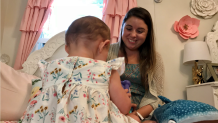
“We’ve always seen her as our own, like we tend to forget about the first three months of her life, because the moment she walked in the door, it was immediate love,” said Jerry.
But the first few weeks of her life were not as happy. The little girl was born with drugs in her system and had to spend a month in the intensive care unit.
Walter Honaman, a senior attorney with Broward Legal Aid, says he handles hundreds of cases similar to the couple’s each year.
“It’s a chain of misery and tears and often the outcomes are not that good,” said Honaman.
It’s Honaman’s job to protect the babies and children who find themselves in Broward County Court. His desk is covered with stacks of case files. Each file represents a different child.
He says he has double the amount of files than three years ago.
“You get to know the kids, faces, names, stories, their aspirations, their dreams, and sometimes you have to watch those dreams get snuffed out,” said Honaman while fighting back tears.
The Faces Behind the Opioid Epidemic
Legal Aid’s office in Palm Beach County tells us 24 parents have died from overdoses in just 24 months - an average of one death per month.
“It’s a crisis for children and their parents,” said Rein.
There are similar anecdotes at the Broward Dependency Court.
“I unfortunately had parents who have overdosed, some had died while their cases are in care,” said Judge Stacey Schulman, who sees an average of 40 families a week.
“It’s tragic,” she added.
While Schulman’s goal is to reunify children with their parents, she admits that’s not possible in some cases due to constant relapses.
“Our number one priority is to keep children safe and keep them stable,” she said.
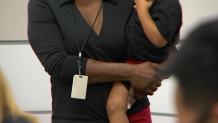
Allison and Johnathan Lowe know how difficult getting clean can be. The pair, who has been battling opioid addiction since they were young adults, lost custody of their daughter for more than a year.
“We lost a lot of loved ones, friends and family along this path,” Allison said. “It’s a sad existence is what it is, you’re alive but you’re not living.”
It all started when Allison was prescribed Oxycodone after two back to back car accidents. She says it only took a week to get hooked. Soon, they both were.
“That definitely started us down a path, where there’s no turning back,” she said.
After completing court ordered rehabilitation, they were reunited with their daughter last Summer. “Living the life of an addict is not easy and living the life of someone in recovery is just as difficult,” she said but adds “we’re so excited to be living this new life.”
They are now sharing their story, hoping others can learn from their own experience.
Schulman says the Lowe’s success story is possible but it takes time and support. She cites medical assistance treatment (MAT) and trauma-based therapy as successful sources of treatment for parents battling addiction.
“The only way you can get sober is to do it for yourself and I wouldn’t have done it because I didn’t love myself. If it hadn’t had been for the court system,” Allison said.
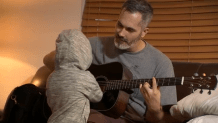
In the meantime, the Irizarry family is committed to take care for as many children as possible. They are currently approved for up to three children at a time.
“We talk about how we can get a bigger place to take on more kids,” said Victoria.
Last summer, they formally adopted their 19-month-old foster daughter, after her birth mother died from an overdose and her father signed over his parental rights.
“A lot of people are afraid to take in a kid who comes from an opioid crisis home because it’s going to be hard, but I’d like to push people to think about the child’s heart before you think about yours,” said Jerry.


